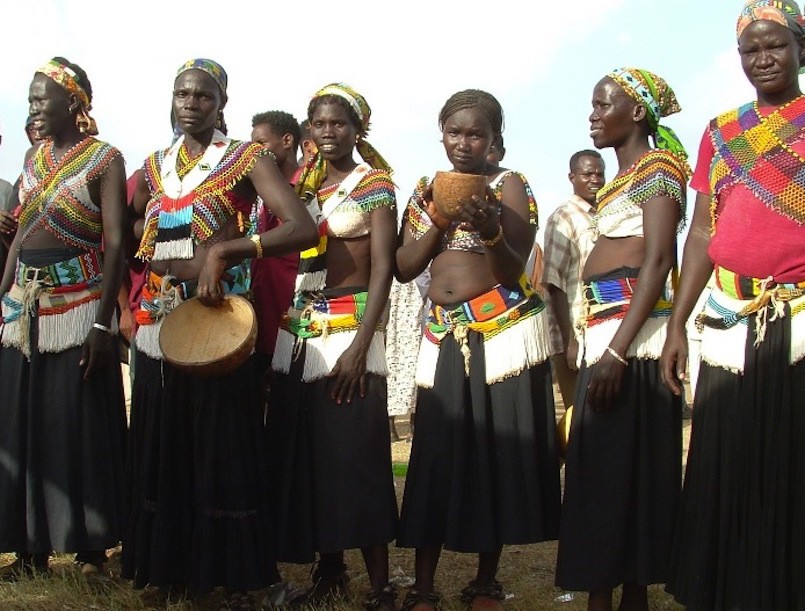Two highly interesting details about the marriage style of the Latuka people of South Sudan will interest you: the bride-to-be must be kidnapped by her suitor, and, the father of the bride-to-be must show acceptance to a suitor by beating him.
It is unsure how intense or extensive the beatings take but when a woman is spotted by a man and is kidnapped, it takes away her choice and right to make an input into which man she spends the rest of her life with.
Predominantly farmers who keep large herds of cattle, sheep and goats in the mountains of South Sudan, the small ethnic group of the Latuka or the Otuho have practised subsistence farming for long.
Common among the crops they grow are groundnuts, sorghum, maize, and tubers like yam and potato.
According to their history, the Latukas embody a communal lifestyle where nothing is kept from anybody: they practice a system of sharing and as such, no single person rules over them. Instead, they have a group of elders who are vested with the authority to guide them.
The Latuka tribe is also known for its strong defiance of many forms of religious penetrations and other cultures, including marriage. Over the years, they have not changed their marriage tradition despite great criticism.
In many other parts of the world, there is usually a gentlemanly ceremony of handing over a woman to a man, mostly by the father of the bride-to-be, after both the man and the woman have agreed to live together.

However, when a man from the Latuka tribe desires to marry a girl, he has to first of all, kidnap her from her family home and thereafter, return to the family to officially ask for her hand in marriage.
The suitor asks the girl’s father for his daughter’s hand in marriage, along with elderly male relatives who accompany him.
With the girl still in his possession, her father is left with a choice on whether or not to agree to the proposal by this suitor. The response of a “yes” or “no” from the father comes with its separate ceremonial activities.
If the girl’s father agrees to the proposal from this suitor, as a way of showing his appreciation, he is expected to beat his prospective son-in-law. This action explains that the man is willing to be beaten for her. It’s about the sacrifices he’s willing to make for the woman he loves.
However, if the father’s response is “no”, the choice is left in the hands of the suitor: he decides whether to return the kidnapped daughter or chooses to go ahead to marry her regardless.
Many have argued on this practice for long, wondering if it is right for a woman to be kidnapped and left without a choice to decide if she wants to be with a man or not. But others believe that what the Latuka do is similar to what happens in the Western world.











